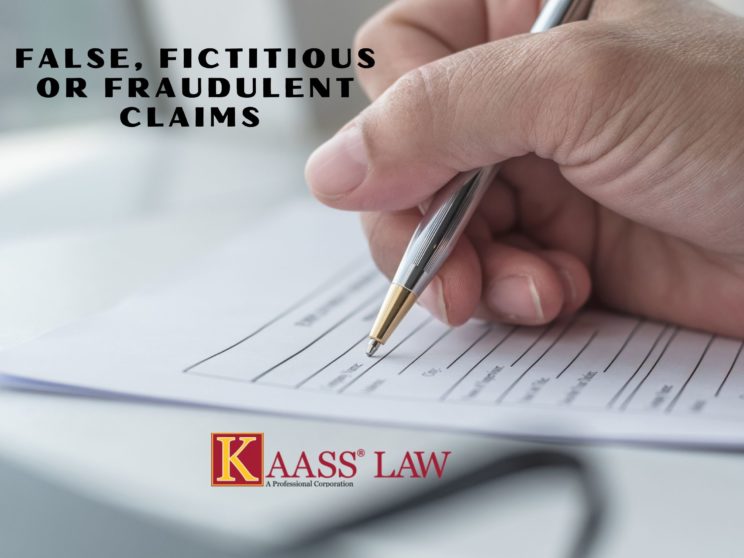False, Fictitious, or Fraudulent Claims, 18 US Code, Sections 286, and 287
According to Title 18, US Code, Sections 286, and 287 it is illegal to make false, fictitious, or fraudulent claims upon the United States or conspire to make such claims.
Elements of Crime Under US Code Section 286
The prosecution must establish the following element to convict the defendant under US Code Section 286.
- Defendant engaged in a conspiracy to get payment from a claim presented to a department or agency of the US for property or money.
- The presented claim was false, fictitious, or fraudulent.
- The defendant knew that the presented claim was false, fictitious, or fraudulent.
There can also be two additional elements, depending on the district:
- Defendant knew about the conspiracy.
- The defendant joined the conspiracy of his free will.
Elements of Crime Under Us Code Section 287
The prosecution must establish the following element to convict the defendant under the US Code, Section 287.
- Defendant made or presented a claim to a department or agency of the US for money or property
- The presented claim was false, fictitious, or fraudulent
- Defendant knew that the presented claim was false, fictitious, or fraudulent.
- The defendant did so with the intent to violate the law or with the awareness that what he was doing was wrong.
What Are False, Fictitious, or Fraudulent Claims?
False – means illegal and deliberately untrue. Presenting a false claim is having the intention to perpetrate a betrayal of trust or fraud.
Fictitious – means not real, feigned, or pretended.
Fraudulent– means made, done, or affected with the intention to carry out a fraud.
Claim Against the Us
Examples of claims against the US include, but are not limited to:
- Presenting untrue refund check to a financial institution for payment
- Presenting false tax return seeking a refund
- Cashing or depositing refund checks to which the person was not entitled.
Presentation of a claim against the government must be more than an intention to make a claim; it must be presented physically and actually, and thereby made to the government. The defendant can be convicted for only presenting the false claim and it is not necessary that the government pay or otherwise fulfill the fraudulent claim. Moreover, the claim doesn’t have to be presented directly to the government, it can be presented to an intermediary authorized to accept the claim on behalf of the government, such as a tax return preparer, as long as the defendant is aware that the claim will we be presented to the government.
Defenses 18 US Code Section 286 and 287 Charges
- The defendant didn’t have the intent to defraud.
Actually the process of making a claim against the government can be very confusing, and claimants can sometimes make honest mistakes. In case the prosecution can’t prove beyond a reasonable doubt that the defendant made the false claim knowingly and intentionally he cannot be held criminally liable for this crime.
- There was no false claim.
In case the defendant can show that his claim was true and correct, then the charges must be dismissed.
Penalties for Violation 18 US Code Section 286 and 287
Penalties for violating Section 286: Conspiracy to defraud the Government with respect to claims.
- Up to 10 years in Federal Prison
- A fine.
Penalties for violating Section 287: False, fictitious or fraudulent claims.
- Up to 5 years in Federal Prison
- A fine.


Pingback:How Can A Fraudulent Conveyance Notary Be Avoided? - KAASS LAW